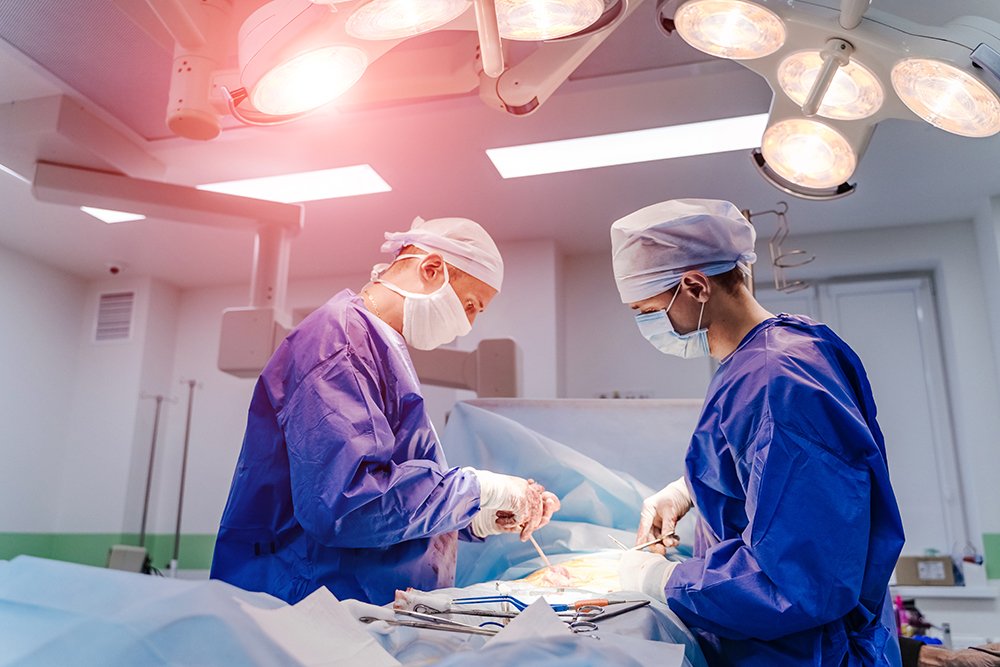Doctors that specialize in the diagnosis and treatment of diseases of the small intestine, colon, anus, perianal region, and rectum are known as colorectal surgeons. Colon physicians are healthcare providers who focus on identifying and treating diseases of the colon and rectal regions.
What illnesses does a Colorectal Surgeon identify and treat?
Tests can be done by a colorectal surgeon to determine what is causing:
- Anal incontinence
- Back pain
- Constipation
- Diarrhea
They can also identify and handle the following ailments:
Anorectal ailments
Swollen veins that can develop inside or around the anus are known as hemorrhoids.
Tiny, painful tears in the anal lining are known as anal fissures.
Perianal abscesses: Pus-filled mass
Fistulas are tiny passageways that form between the skin at the anus and the bowel’s end.
Anal skin tags are tiny skin growths like Polyps
These are microscopic tissue growths that occur inside the colon. Noncancerous benign polyps do not invade other bodily regions and are not cancerous. When malignant polyps get big enough or go untreated, they can spread to other parts of the body and become cancerous.
Rectal and colon cancer
A colon physician will be qualified to diagnose and manage colorectal cancer.
IBD: Inflammatory bowel disease (IBD) is a long-lasting gastrointestinal inflammatory disease. According to the disease’s severity, the location of the inflammation, and specific symptoms, experts can classify it. Ulcerative colitis and Crohn’s disease are the two primary IBD subtypes.
(IBS): Irritable bowel syndrome (IBS) is a condition of the colon, which is also known as the big intestine. Constipation, cramps, diarrhea, stomach pain, and bloating are all signs of IBS.
Diverticulitis
When there are diverticula present, the colon gets infected and swollen. Diverticula are tiny pouches or sacs that develop on the wall of the colon.
The disease known as rectal prolapse occurs when the rectum, or bottom portion of the large intestine, protrudes from the anus.
What actions does a Colorectal Surgeon take?
Exploratory tests of the colon, rectum, or anus are a common technique for colorectal surgeons:
A long, flexible, lit tube is inserted through the anus during an anoscopy. The anus and rectum can be examined by doctors using this tube, which includes a tiny camera on one end. The colorectal surgeon can better see the anus, anal canal, and internal sphincter as a result.
Colonoscopy: During this procedure, the doctor can see within the rectum and large intestine. Finding the root of symptoms including anal bleeding, stomach pain, unexplained weight loss, and changes in bowel habits can help them.
Digital rectal examinations: The doctor places their fingers within the rectum to look at the prostate and the lower rectum. Constipation, bowel incontinence, and anal haemorrhage can all have their causes identified.
Laparoscopy: A fiber-optic camera called a laparoscope is used by the colorectal surgeon during this minimally invasive treatment to help with the surgery.
Proctoscopy: The doctor examines the rectum and anus. At the same time, they might obtain samples or get rid of polyps.
Sigmoidoscopy: This procedure looks at the sigmoid colon, which is the lowermost portion of the colon. It searches for abnormalities such as polyps and others.
How to find the best Colorectal Surgeon in Ahmedabad?
To locate a colorectal surgeon, people should consult a physician.
In addition, general practitioners may advise patients to see a colon and rectal surgeon if they experience constipation, diarrhoea, or other digestive problems, or if they have had specific surgeries that may have resulted in colon damage.
You can also visit Dr Avadh Patel one of the top Colorectal Surgeon in Ahmedabad.
Summary
A doctor with expertise in identifying and treating diseases of the colorectal system is known as a colorectal surgeon. A Colorectal Surgeon in Ahmedabad like Dr Avadh Patel can help with the diagnosis and treatment of issues like haemorrhoids, fissures, abscesses, polyps, cancer, and more.

